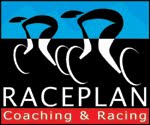www.cyclingnews.com - the world centre of cycling
USAC president: The era of the collegian
The new board president of USA Cycling, Mark Abramson
Photo ©: USA Cycling (Click for larger image)
In March the USA Cycling board of directors elected its vice president, Mark Abramson, to succeed the term-limited Jim Ochowicz as president of the board. The new president comes from the ranks of collegiate cycling (NCCA), one of the five discipline associations, and is the first NCCA member to hold this position. Abramson spoke with Cyclingnews' North American Editor Mark Zalewski about where he plans on taking the board in his term.
If one had to title the new USA Cycling board president Mark Abramson's upcoming term in office, it would be 'the era of the collegian'. This is because Abramson sits on the board of directors as the sole representative of the National Collegiate Cycling Association (NCCA). Collegiate cycling is where he was first exposed to bicycle racing and it is the vehicle that brought him up the ranks of USA Cycling.
"I became involved with racing in 1995," said Abramson. "I started mountain bike racing at Tufts University. Eastern Massachusetts is not exactly mountainous but we have surprisingly good singletrack." Abramson, 33 (but in true USAC fashion said, "Racing age, 34!") is a Boston native and currently resides in Cambridge running a software development company. "I grew up in Wayland in the suburbs of Boston. Boston has a great cycling community, but certainly a tight-knit racing community as well."
Abramson continued his involvement with cycling in the collegiate ranks, both in racing itself and then promoting after graduation. "I was involved in collegiate cycling as a rider and then within the team when we hosted an eastern championships in 1996 - I was the promoter of that event. Then I became more involved with the eastern conference, and after I graduated I took over as assistant conference director and then conference director."
At this point collegiate cycling was not a full association within the governing body. Abramson continued increasing his involvement within the sub-discipline by expanding his work beyond New England and pushing for inclusion at the top level. "I became involved with collegiate cycling at the national level with the NCCA committee. We then worked to add ourselves as a full USA Cycling association, and became part of the board of trustees and got a seat on the board of directors. I served on the NCCA committee and became a trustee and then director.
"I've always considered myself a cyclist, but collegiate cycling was my introduction to the competitive side of the sport. I started off mountain bike racing but then I got bit by the road bug. That became my primary focus, though I did run the Boston Cyclocross Association for a number of years. We promoted a number of races in New England, so that was another outlet."
Continue to the full feature.



